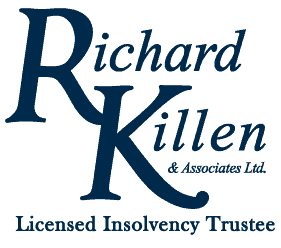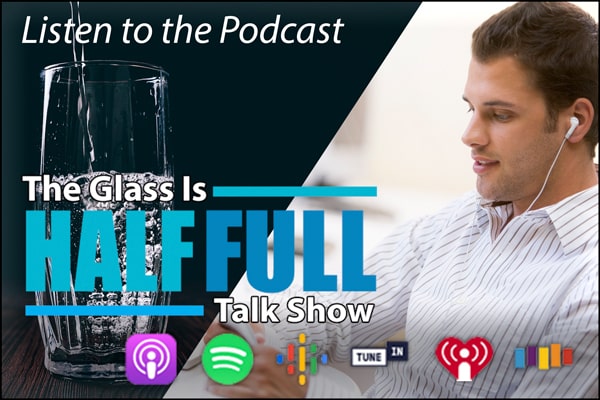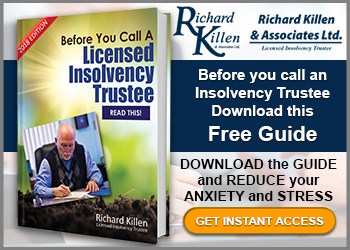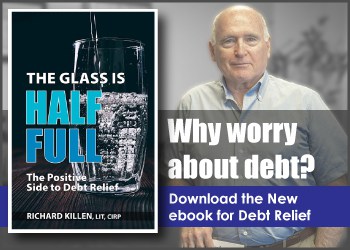Debt Consolidation and Debt Consolidation Loans FAQ’s
If you’re juggling multiple bills, high-interest credit card debt and payday loans, debt consolidation or a debt consolidation loan can be a way for you to reduce your debt and get your credit back on track. With a growing number of Canadians likely to use credit cards to help pay bills and mostly to cover daily expenses due to job loss or reduced income caused by the financial fallout of COVID-19, knowing that there are programs out there that can help reduce or eliminate debt can be stress-relieving, and even life-saving for some people.
Several debt relief programs in Ontario may help you become debt-free. Your options can include consumer proposals, debt consolidation loans, bankruptcy, and credit counselling. The Licensed Insolvency Trustees at Richard Killen & Associates can help you tackle debt head-on with customized solutions. We can help you understand how each program works and what the consequences may be so you can be empowered to choose the best solution for your unique financial circumstances
HOW DOES DEBT CONSOLIDATION WORK
Debt consolidation is essentially a debt repayment strategy wherein you take out a new loan to pay off multiple bills. As a result, you are left with only one loan to worry about. Ideally, you would only make a single payment on the new loan each month at a lower interest rate.
The process involves the following steps:
- Total up all the unsecured debts you wish to consolidate.
- Calculate the average interest rate you’re currently paying on all those liabilities. Use this number to compare rates on loans when shopping around.
- Review your budget to determine how much you can afford to pay each month. Make sure your budget includes all your expenses for rent or mortgage payments, food and groceries, utility bills, entertainment, savings, and other recurring household costs.
- Check your credit score to evaluate if it’s high enough for you to qualify for debt consolidation in Ontario at a low-interest rate.
- Shop around to find the best options available that will fit your needs. You can find consolidation loans through your bank, credit unions, credit card companies, or debt relief companies. Use an online comparison tool to compare loan rates from different lenders.
- Once you find a vendor that provides the amount, rate, and terms that best fit your budget, you can apply for it. Make sure to apply only for the loan that best suits your needs. Limit your application to two or three lenders the most as applying for multiple loans at the same time can damage your credit.
- The lender will review your credit history verify your income and set the interest rate based on your credit score and financial circumstances. If you meet all the requirements to qualify, you will receive a notice of approval from the lender.
- You can negotiate the final terms of your loan with your lender to make sure that it has a lower interest rate than the average interest rate you are currently paying on your current liabilities.
- Once you sign on for the loan, the lender will disburse the funds either by paying off the debts you jointly agree will be paid off or the lender will deposit the funds in your bank account and you take the responsibility to pay off all your previous overdue bills, credit card balances, and any other outstanding payments due using the new money received from the lender.
- With your other debts fully paid off, you will have to be disciplined enough to keep up with the new loan payment each month as well as not to take on new loans that will make you rack up more debt in the process.
WHAT KIND OF DEBT CAN BE CONSOLIDATED?
Consolidation loans are often used to pay off multiple high-interest credit cards that have high balances. However, this financial tool is not only for credit card consolidation it can also be used to consolidate other unsecured debts, such as:
- Payday loans
- Personal lines of credit
- Finance company loans
- Medical bills
- Hospital bills
- Retail card bills
- Department store cards
- Gas card bills
- Unsecured personal loans also called signature loans
- Back rent
- Overdue utility bills (telephone, electric, gas, cable, and other utility bills)
- Past due cell phone bills
- Income tax amounts owed
- Certain types of student loans
- Other types of loans that do not have a collateral requirement attached
In some cases, loan consolidation can also help to eliminate or reduce some types of secured debts, such as:
- Home improvement loans
- Auto repossession overage balances
- Short-pay mortgage balances
IS IT HARD TO GET A CONSOLIDATION LOAN
If you have a poor to fair credit score (usually a score of 574 or less), you might need to look for a lender that specializes in consolidation loans for bad credit. Unfortunately, loans for bad credit come with high interest rates which means that instead of saving you money, you risk staying in debt for years longer than necessary as a good portion of your payments will go towards interest charges and not towards the principal amount you actually owe. In this case, we recommend other ways to consolidate your multiple debts and pay them off with one simple payment each month.
DEBT CONSOLIDATION HELP FOR BAD CREDIT
Many consolidation options specifically deal with bad credit and allow you to take control of your finances while you work toward being debt-free.
A debt management program or DMP is one option to have all your debts consolidated into one monthly payment. A credit counsellor will negotiate with your creditors and create a repayment plan that will allow you to make a single monthly payment for three to five years.
You may also consider consolidating debt with a consumer proposal. A licensed insolvency trustee will negotiate with your creditors to make a deal to repay only a portion of your debts. As a result, you get to pay one monthly payment for your consolidated debts but for a much lower amount as there is an actual reduction of the total amount to be paid back.
Some people take out home equity loans with a low fixed interest rate and fixed monthly payment to pay off high-interest credit cards. You may also consider applying for a balance transfer with a low-interest credit card consolidation loan.
DEBT CONSOLIDATION HELP
Whichever option you choose, be sure to shop around to find the best loan terms. Your number one goal should be to get the lowest interest rate possible. No matter what option you choose to go with, a debt consolidation loan should help you manage multiple bills and enable you to get out of financial trouble faster with one simple monthly payment.
Before you sign any loan application, talk to us at Richard Killen & Associates and we can help you carefully review the terms. We can also help you explore other debt relief programs and whether debt consolidation or even getting a debt consolidation loan for bad credit in Canada is your best option to address your money challenges, particularly if you have serious debt problems as there may be better options available.











